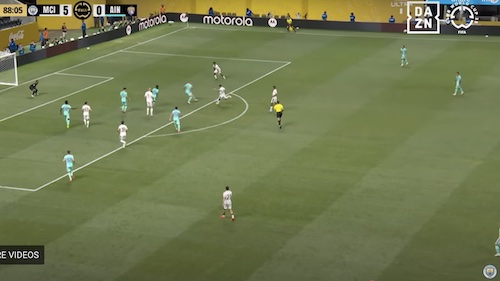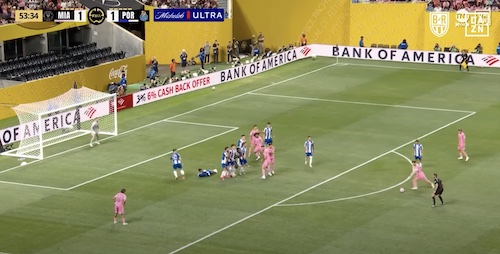| By Nina Christiane Birkel
“Grown from the milieu of workers and pitmen, being down-to-earth, conscious of tradition and close to the people are values that remain a vital part of the Miners philosophy.” This quotation from the official website of FC Schalke 04 sums up the most characteristic attribute of the football club. More than any other football club in German soccer’s top tier, the Bundesliga, Schalke takes great pride in its longstanding heritage of unshakable fan loyalty. “Because especially in difficult times there has been one constant for the Royal Blues: the fans.
And these are difficult times for Schalke. The acuteness of their problems has been shown by a recent study comparing the financial situations of Europe’s strongest selling football clubs. The research conducted by Saarbruecken University’s Professor Karlheinz Kueting for the German television channel ZDF assessed the clubs on the basis of factors such as debt, equity ratio, annual net profit and revenue. Schalke was ranked one of the lowest, alongside Juventus Turin and Chelsea. In keeping with the club’s ‘close to the people’ maxim, supporters have now been presented with a novel opportunity to actively help Schalke out of its estimated 250 million euro debts: the club has introduced a bonds purchasing scheme for fans. For amounts of 100, 500 and the symbolic 1904 euros, fans have the option of purchasing a framed bond certificate portraying the history of the club. The first of these certificates were given out in a ceremony on Saturday (11/09), which saw homegrown Schalke boy and German international goalkeeper Manuel Neuer line up with fans to receive his. The bonds, with an interest rate of 5.5 percent, have a six year running time. The subject of repayment is addressed in a careful tone on the club’s official website: “From today’s point of view (28. July 2010), FC Schalke 04 should be able to repay the bonds in 2016.” As with any such investment, fans run the risk of losing their money should the club go into administration. According to the increasing numbers of bond holders though, this seems to be no great concern. Last Thursday (09/09) saw 7 million in bonds sold, the club’s aim of gaining 10 million through the scheme by the end of October moving comfortably into sight. While this attempt to cash in on their fans’ unwavering support has been a success for Schalke, another measure introduced by the club to fill the coffers has caused great controversy. The ticket prices for the upcoming derby with arch nemesis Borussia Dortmund have been raised by over 50 percent for some categories, including standing room. This increase, affecting especially those fans of little financial means, has enraged Dortmund supporters. Many fan organizations are now openly calling for a boycott of the encounter on September 19, which has been billed “the game of the season”. Schalke supporters retaliated, pointing out that ticket rates for derbies in Dortmund have been similarly high for years. Nevertheless, numerous Borussia fan clubs have decided against taking advantage of the share of tickets reserved for them, in a move of protest that has been commended by Dortmund officials. “I think it’s good that our people aren’t going there, to finance Klaas-Jan Huntelaar!” Dortmund’s manager Jürgen Klopp was quoted as saying by a German newspaper, commenting on Schalke’s recent spending spree. Indeed, purchasing policies seem to be in stark contrast to the club’s financial situation. Huntelaar’s 14-million-euro transfer from AC Milan marked an all-time record for the club, in addition to the acqusition of Atletico Madrid’s José Manuel Jurado for 13 million euros. While manager Felix Magath seems to have no reservations about spending exorbitant amounts on new players, he has successfully campaigned to cut down on players’ salaries. “When I arrived, players were earning an average of 91,000 euros per month, without bonuses. I have lowered the basic salary for new contracts by 20 percent. Thus, the current team earn an average of around 73,000 euros,” he told the German paper Süddeutsche Zeitung. With a yearly income of about 1 million euros, the average Schalke player by no means makes the list of Bundesliga top earners. However, the average Schalke fan, living on minimum wage or even unemployment benefit, will likely have little if any concept of such numbers. Schalke is a borough of Gelsenkirchen, a former coal mining city with one of the lowest income rates in Germany. The unemployment rate in Gelsenkirchen is 14.7 percent, which is almost double of the German average. Thus, the fanbase of the ‘Miners’, as they proudly call themselves, consists largely of people with low or no income. And yet, it is these fans who are showing a willingness to support their club that goes above and beyond what would be imaginable for most other football clubs in Germany. For many, this means spending money they simply do not have – ironically mimicking what their football club is doing on a much greater scale. Meanwhile, Schalke continues to dwell at the very bottom of the Bundesliga table, having been defeated by Hamburg (2-1), Hannover (1-2) and most recently Hoffenheim (2-0). Now that so many fans are investing in their club not just emotionally but financially, they may feel more than ever that they are owed better results. |
Your Soccer Resource Center














